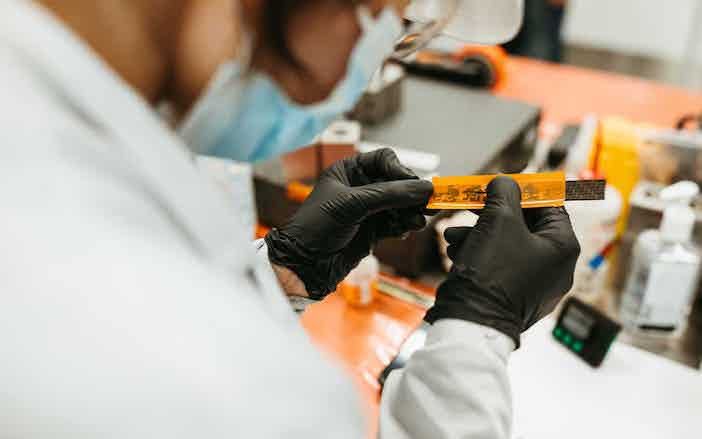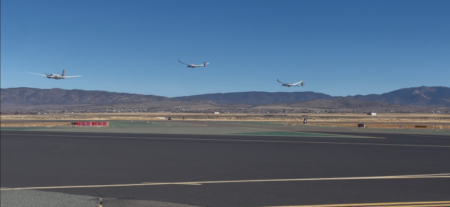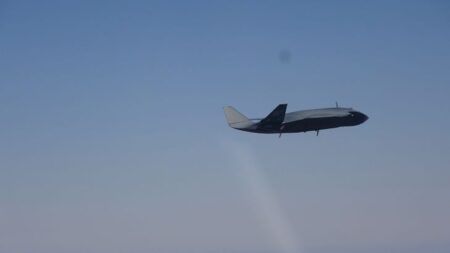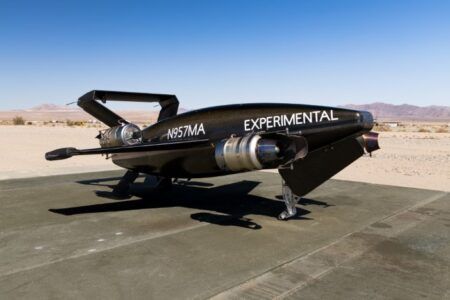Engineers at California, USA-based Joby Aviation have begun conformity testing the materials it is using in its eVTOL aircraft, marking the start of the implementation phase of the FAA’s Type Certification process.
Joby plans to certify its passenger-carrying eVTOL aircraft within the next two years and last month added a second prototype to its test aircraft fleet. It’s S4 tilt-rotor aircraft can transport a pilot and four passengers up to 150 miles (240km) at speeds of up to 200mph (320km/h). The company began flying full-scale prototypes in 2017.
Federal Aviation Administration (FAA) conformity testing is a key milestone on the path to achieving type certification for its aircraft. The testing confirms the material strength of composite coupons that are representative of the aerostructure of Joby’s aircraft and are observed and documented by an on-site FAA Designated Engineering Representative (DER).
The resulting compliance data will then form the foundation for future testing of structural components of the aircraft as Joby progresses through the type certification process.
Each system and structure of the Joby aircraft will enter the implementation phase and begin conformity testing following completion and approval of requirements definition and compliance planning. During this phase, Joby will complete thousands of inspections and tests to demonstrate the airworthiness and safety of its aircraft before receiving a type certificate from the FAA.
The first conformity tests were completed last week at Toray Advanced Composites USA’s facility in Morgan Hill, California.
JoeBen Bevirt, founder and CEO of Joby said, “After years of development and company testing, we’re excited to formally begin the process of conformity testing.
“We began engaging with the FAA in 2015 to lay the groundwork for certification of our aircraft, and today we move closer to bringing fast, clean and convenient aerial ridesharing to the world.”
Joby completed its first FAA part conformity inspection as expected last November, confirming that the batch of test coupons used in the “for credit” testing conformed to the attributes and specifications of their associated design data and as intended for the aircraft’s type certification.
The coupons, constructed using a toughened epoxy and state-of-the-art carbon fiber, result in a material that is lighter and stronger than existing aerospace-grade composites, making it ideal for a high-performance eVTOL aircraft.
“Entering this stage of testing demonstrates that we’re capable of manufacturing composite parts in accordance with their design, our quality system is capable of producing conforming composite parts for the aircraft, and that we have the requisite traceability and design verification processes in place to progress toward our type and production certifications,” said Lina Spross, quality and supply chain lead at Joby.
In 2020, Joby became the first and only eVTOL company to sign a G-1 (stage 4) certification basis with the FAA, having received an initial (stage 2) signed G-1 from the FAA in 2019. In parallel with this work, the Company continues to make progress with the FAA on defining the means of compliance that will apply to its aircraft as it progresses with certification efforts.
Related Stories
Joby and NASA conduct flight tests for eVTOL noise analysis
Joby completes flight of more than 150 miles with all-electric air taxi
Uber sells its air taxi development program to Joby Aviation





